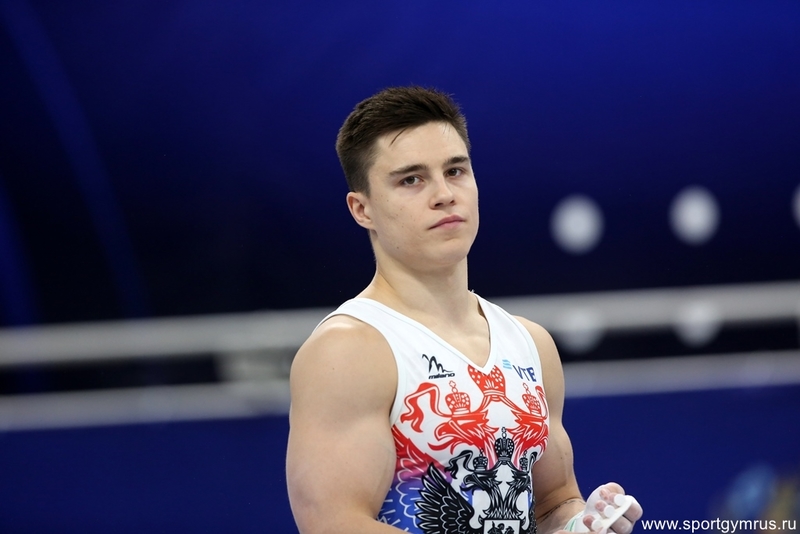Changing time zones can be a challenge for gymnasts and it looks like one of the aims of the Russian Cup was to try competing as close to the Tokyo time zone as possible. The event took place in Novosibirsk (+4 hours from Moscow time) and all the competitions are being held in the late afternoon or night. Gymnasts admitted to the media they were struggling with the schedule. Nikita Nagorny even said he almost missed the all-around final due to his sleep schedule being messed up:
“The all-around final was actually quite hard. Today, for the first time in my career, I almost overslept and missed the competition. The fourth or even fifth day [since the arrival] is the hardest day, the hardest blow in terms of the adjustment. So, I couldn’t sleep all night, I slept about an hour and a half. Then I came [to my hotel room] after the morning practice and was knocked out. A coach calls me, I ride to the arena with him – “Where are you?” I jump up panicked after realizing the competition is in an hour but I’m still at the hotel. Thankfully, everything ended well, I managed to warm-up well and get myself in order. Of course, I was asleep for the first three events but then started competing in a calmer manner.”
Despite the lack of sleep, Nagorny won the all-around scoring over two points higher than second-place finisher Aleksandr Kartsev on the final day and over six points after two days of competition (qualification and final scores are summed up in the all-around competition at the Russian Cup).
Nagorny had to miss the Russian Championships in March after getting strep throat. He came to the Russian Cup healthy but the time difference and intensive work started getting to him and he was visibly tired on the first day of the event finals. He also struggled landing the triple pike, his named element, on floor but said it’s because he’s trying to figure out a way to change the landing:
“I don’t want to give excuses but I can say that I’m looking for how to do it with minimal deductions. That is, how to stick the landing, not to hop and so on. And the technique I used before, with a possible step or a hop back, is less reliable than if I land with a possibility of a step forward.”
The Russian Cup most often takes place in Penza, a city not far from Moscow with dorms adjacent to the arena. It is certainly convenient for the national team and cheap but the arena almost never draws any spectators and gymnasts were quite sick of competing there over and over again. The competition in Novosibirsk was both well attended and well-produced:
“The fact that we can already compare [this competition to the European Championships] is great. Because [Russian competitions] used to be as simple as possible. Simple lighting, no kinds of performances, no working with the spectators and, I guess that’s why there were no spectators, I think. This time I was, of course, very impressed that, for example, there is some sort of information [on the screen] when we’re warming up, even the kind that’s interesting for me. At some points, I even stopped and looked at the screen. No, the organization is great, it’s at the proper level. I can proudly say that we got to the new level.”
Nagorny was especially happy to see young fans in the stands
“We are especially charged and motivated by the support of kids, it’s even more important and enjoyable [than that of the adults]. Because kids cheer without any emotional restrictions. Adults are more serious, they might applaud more sparingly.”
Nagorny also said after the qualification that he needed to get to his competition weight:
“I’m going to the banya now, I need to get rid of a bit of weight. I think it affected me on the apparatuses today, it was a bit hard for me. But there’s a reason for that – extra weight, I still have about 1.5 or 2 kilos [above the competition weight], so I have a task for today. And, of course, I need to rest, to sleep. We have a day off tomorrow. I mean, a day without competitions. I can come and do light training, work on my mistakes and go out in the all-around final with new energy and at a good weight.”
Nagorny won bronze on pommel horse on the first day of the event final but finished last on both floor and rings and appeared to have slightly hurt his neck on floor. He still plans on competing in the three event finals today.
If you missed any of the finals, you can watch the archived streams on the federation’s website. The last day of competition will also be streamed there. Fans outside of Russia will need to pay to access the stream (it is free for those in Russia). The cost of access to one final is $2.99 and the package for all finals costs $8.99.
June 12, MAG and WAG Event Final – 4 pm local time (GMT +7), 5 am ET, 2 am PT
Photo: Elena Mikhaylova, Russian Artistic Gymnastics Federation
Support Gymnovosti on Patreon from only $1 a month and help us bring to you even more awesome gymnastics coverage!



